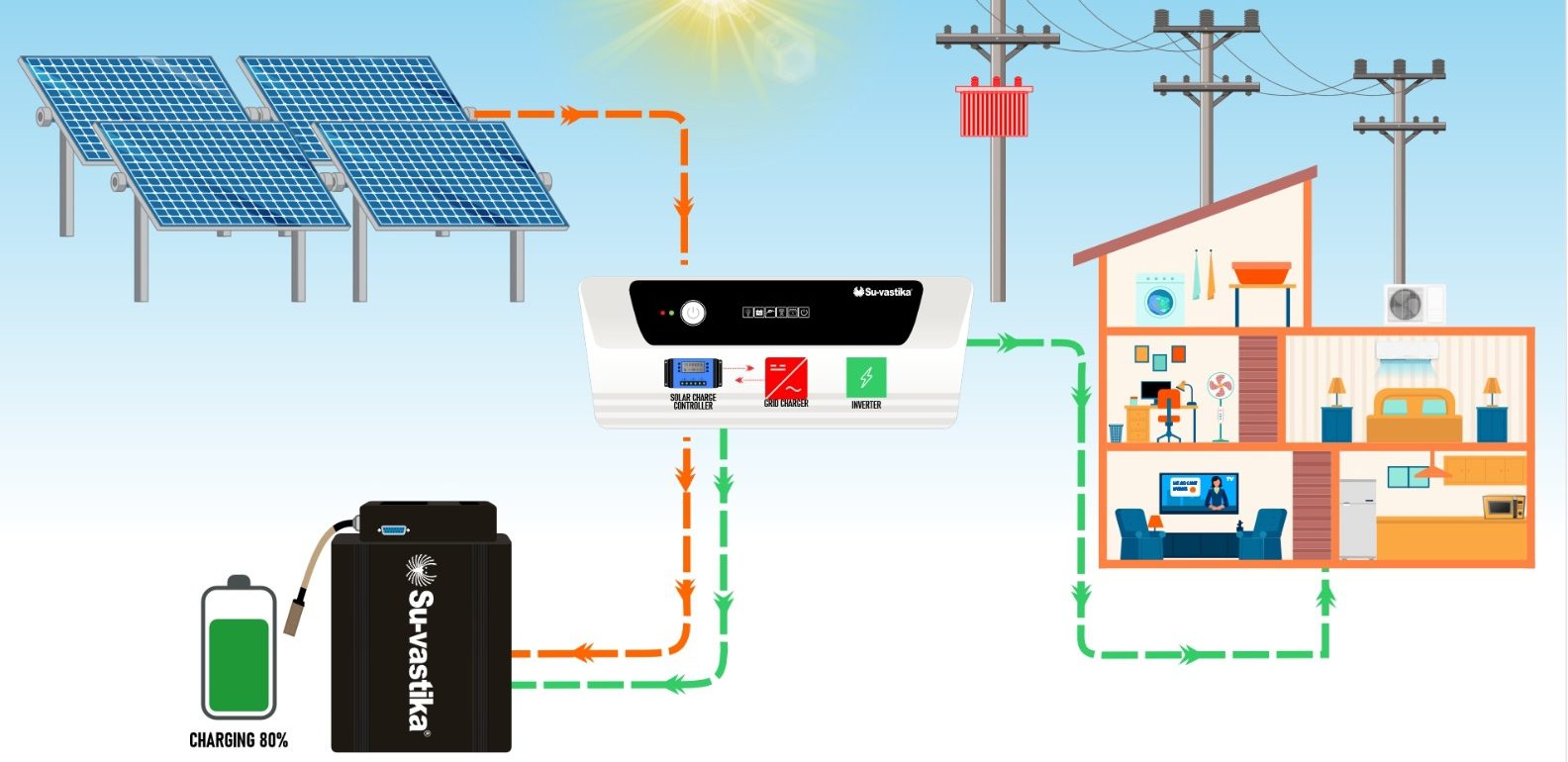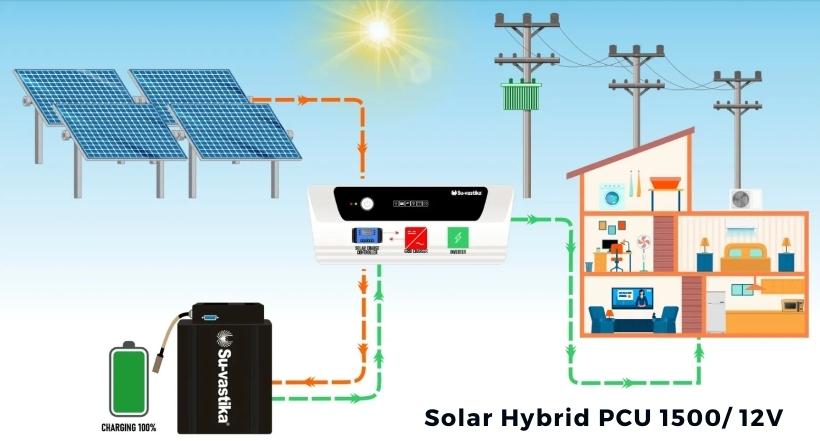What is Solar Inverter
A solar inverter is a device that converts the direct current (DC) electricity generated by solar panels into alternating current (AC) electricity, which is the type of electricity used by most homes and businesses.https://en.wikipedia.org/wiki/Solar_inverter
The Inverter is a critical component of a solar power system, as it allows the solar panels to generate electricity that can be used to power your home or business.
Generate DC electricity without an inverter, which can be used as DC power through the Solar charge controller to run the DC appliances. In the DC solar System, no Inverter is used.
There are different types of Solar Inverters having different applications to use this Solar Inverter:
- Solar On Grid Inverter: Grid-tied Solar Systems generate electricity for your home or business and route the excess power into the electric utility grid for compensation from the utility company having the solar panels and Grid-tied Inverter. These inverters work on the principle of Grid synchronization and feed the electricity made into the internal Grid of the home office or wherever they are installed. If the power generated by the solar Inverter is more than the consumption of the internal Grid, then this power is exported to the external Grid. The Net meter or Bi-directional meter is required rather than the normal meter to calculate the power exported through the Solar Inverter. If the Grid power is unavailable, this Solar System does not function. Hence, the system has anti islanding feature, which stops the power from feeding into the Grid. This is a disadvantage in case of a power failure. No electricity can be made to run the power in home, office or any factory wherever these systems are installed.

- Off-grid solar Inverter where the utility power is unavailable, the Solar System needs an independent system comprising Solar panels, inverters and batteries to store the solar power and use it during the day and at night through the storage system as there is no grid available in those areas. When Grid is not available, this system is called a stand-alone system. It has an Inverter and a Solar Charge controller, which stores the solar power in the battery, and the Inverter runs the load by drawing power through the Solar panels and the battery. These stand-alone Inverters are used where there is no grid at all.https://suvastika.com/what-is-solar-off-grid-system/



- Solar Hybrid Off Grid Inverter/Solar Hybrid PCU: This system has utility power available. The solar power is stored in the battery through the Grid power as well through the solar power, and the grid power is bypassed when the power is available. Solar power is utilized to run the power when the battery is completely charged or when the grid power fails, then the stored power in the battery is utilized. This Solar system is called a Hybrid Solar PCU as well. Hybrid Solar Power Conditioner.https://suvastika.com/what-is-hybrid-solar-pcu-solar-hybrid-off-grid-system/



- Hybrid Solar On-Grid and Off-Grid Inverter: This is the system that combines the On-grid and off-grid features where Solar PV power generated can be fed into the Grid and can be stored in the battery as well to provide power when solar PV power is not available or when there is a power cut in the Grid than the stored power in the battery can be used. These are most popular these days as they are cost-effective. In the future, solar power storage will be an expensive concept, so in this system, one can feed the solar power into the Grid and use a smaller or bigger battery system as per the requirement and use the power in case of grid failure or in case the peak power in the evening time the storage system can power the house etc.https://suvastika.com/hybrid-solar-system-the-best-of-both-on-grid-and-off-grid/



Here are some of the factors to consider when choosing a solar inverter:
- The size of your solar power system: The size of your solar power system will determine the capacity of the Inverter you need.
- The type of solar panels you are using: The type of solar panels you are using will affect the output voltage and current of your solar power system, which will also affect the size of the Inverter you need.
- The location of your solar power system: The location of your solar power system will affect the amount of sunlight it receives and the amount of electricity it generates.
- Your budget: Solar inverters can be of different sizes and types, so that the cost will depend on the type of Inverter and sizing.
It is important to consult with a solar installer to help you choose the right solar Inverter for your needs.



Leave a Reply
Want to join the discussion?Feel free to contribute!